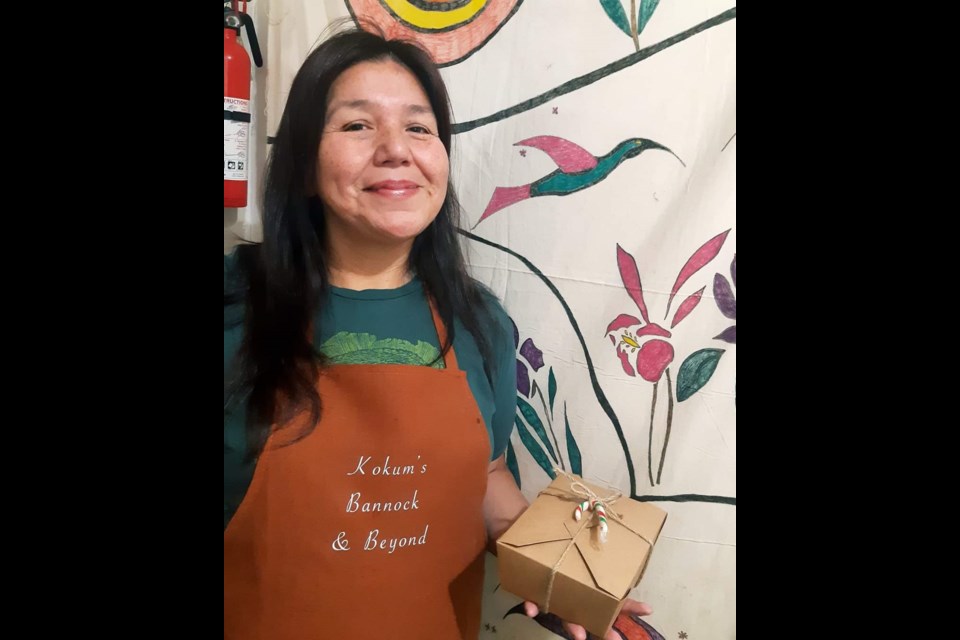“I say, ‘Never give up, even when tragedy strikes you and your family,’” says Caroline Paavola, the owner, chef and kokum (grandmother) of Kokum’s Bannock and Beyond, a home-based catering business.
Paavola is an Anishinaabe woman (Sturgeon Clan) from Namaygoosisagagun First Nation. She started her own business in May 2018, after losing her son to suicide. “I started it in order to cope,” she says. Her original business plan was to create a food retail business to help people like her son. “I wanted to hire people with mental health issues, in honour of my son.”
But life had other plans and Paavola started taking care of four young grandchildren. She decided to get her home kitchen inspected by the health unit and cook there so that she could take care of them while working.
Kokum’s Bannock and Beyond makes and sells a variety of bannocks and cakes to order. There are bannocks made with white flour, whole wheat or spelt, with or without raisins or blueberries. You can choose between pan-baked, cooked on the stove-top, or deep fried. Due to popular demand, she makes a lot of keto sweets such as cakes, biscuits and cookies.
When she gets enough messages from interested clients, she makes bannock tacos, bannock pizza, bannock burger, or bannock dogs, and posts on Facebook for them to order.
In the three years since Paavola started her business, she has done a bit of everything, from making low-carb treats for diabetics to cooking daily meals for a client on a weight-loss program. Since the pandemic started, she stopped catering lunches for organizations, but has delivered meals for people in self-isolation.
Paavola’s husband and daughter take care of deliveries, or customers can pick up on Nelson Street. “COVID isolation was tough on us,” she says, “but it helped me a lot to keep on cooking. At least I was interacting with people - when people pick up, at least you can wave at them from the window!”
Juggling grandkids with a home-business has been Paavola’s biggest challenge. “When I first started I was taking any order. But now I’ll only take up to three orders a day. I have a little grandson who’s one, so I have to work around his nap schedule,” she explains.
The most rewarding thing about the business is how it has brought three generations of women together. Paavola’s daughter, a nursing student, helps with a lot of the keto baking. Her 16-year-old granddaughter, who wants to become a doctor, also helps in the kitchen. Paavola chuckles proudly: “She makes a mean pie!”
The three spend hours together in the kitchen on a daily basis. “Our time together is priceless,” Paavola says. “We always talk about my son; we share stories about him. Because this is what started it, when we lost him.”
“I had to do something, but I just didn’t know what to do,” she says about the time after her son died. “I was working at the women’s shelter but after losing my son I couldn’t do it anymore and I took a year off. Then I just started baking.”
Paavola herself didn’t have her kokum growing up, and it was her grandfather who taught her how to make bannock. She learned to cook from her mother, and when she was working back home on the reserve, she sometimes cooked for the whole community. “I just like cooking; it gives me something, I feel accomplished when I see people liking something I’ve made,” she says.
Paavola is happy with the way things are going. She has met people who thought she was too old to start a successful business. “I am an older woman. But it doesn’t matter how old you are. Age doesn’t define us,” she says.
Eventually, when her grandchildren are in school and she has more time, she hopes to go back to her original goal and expand her business, so that she can hire people with mental health issues.



